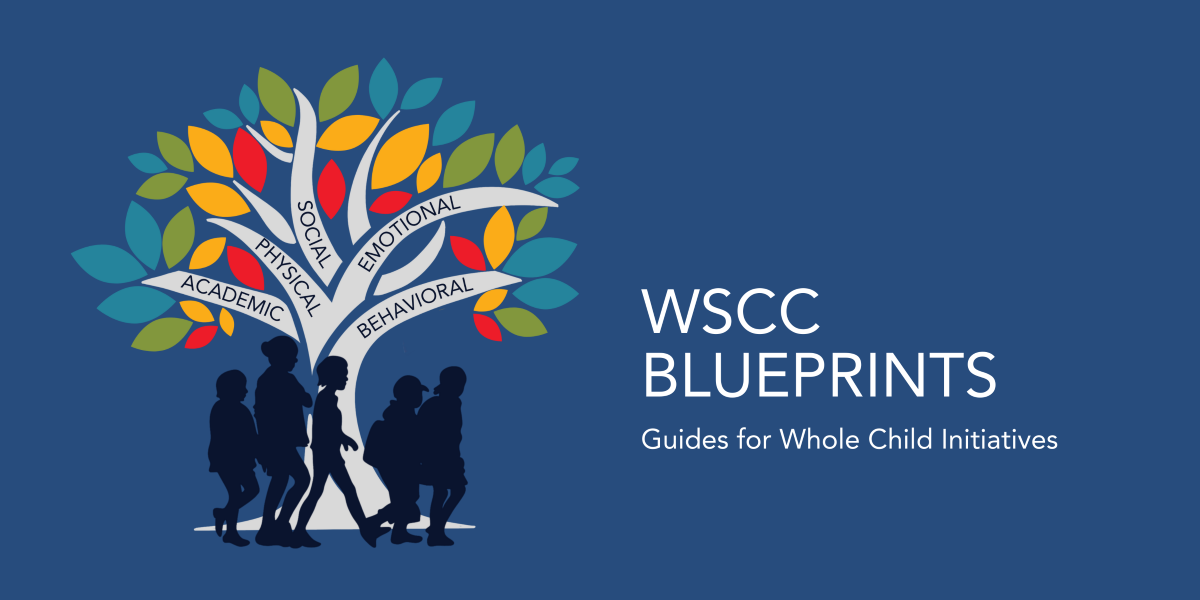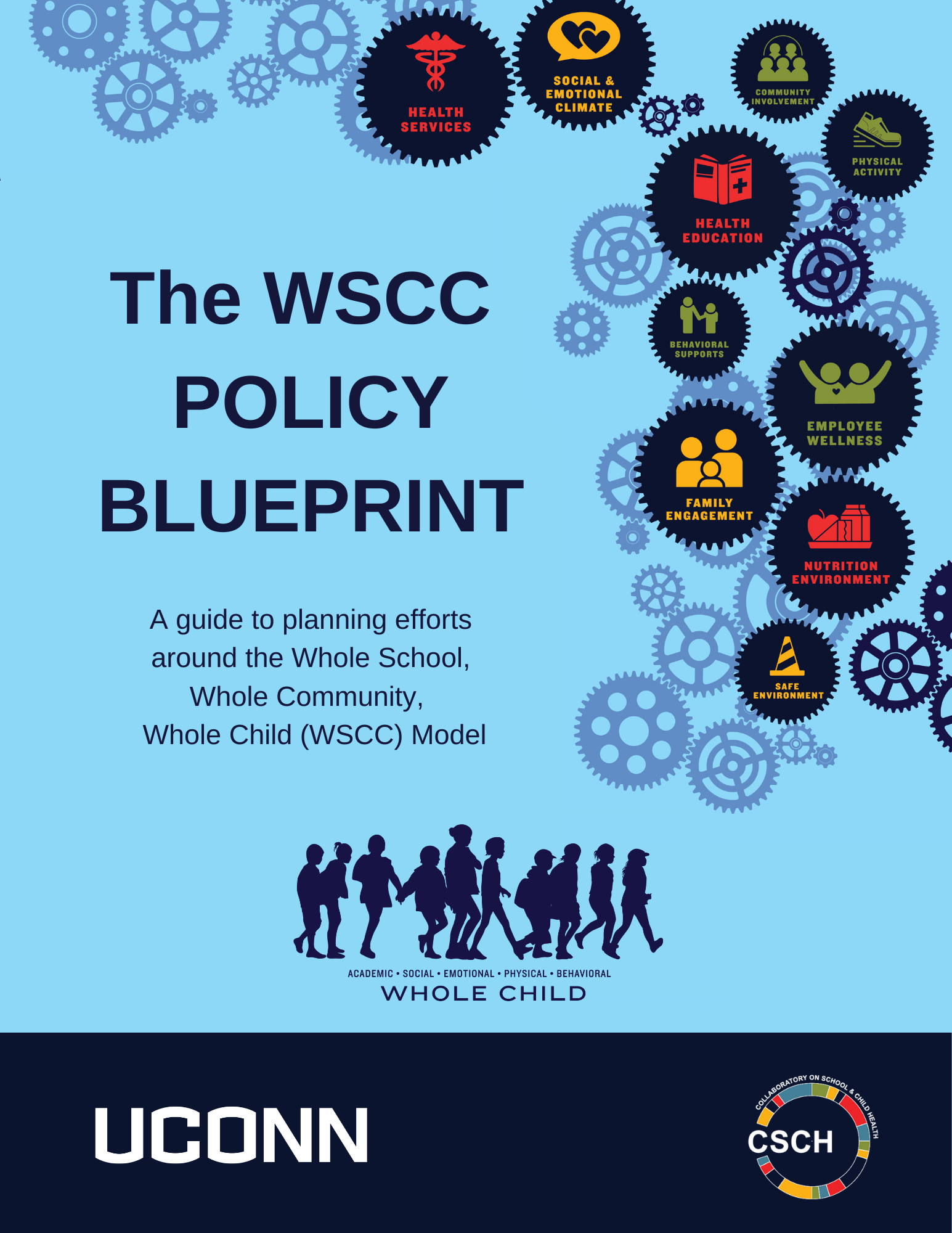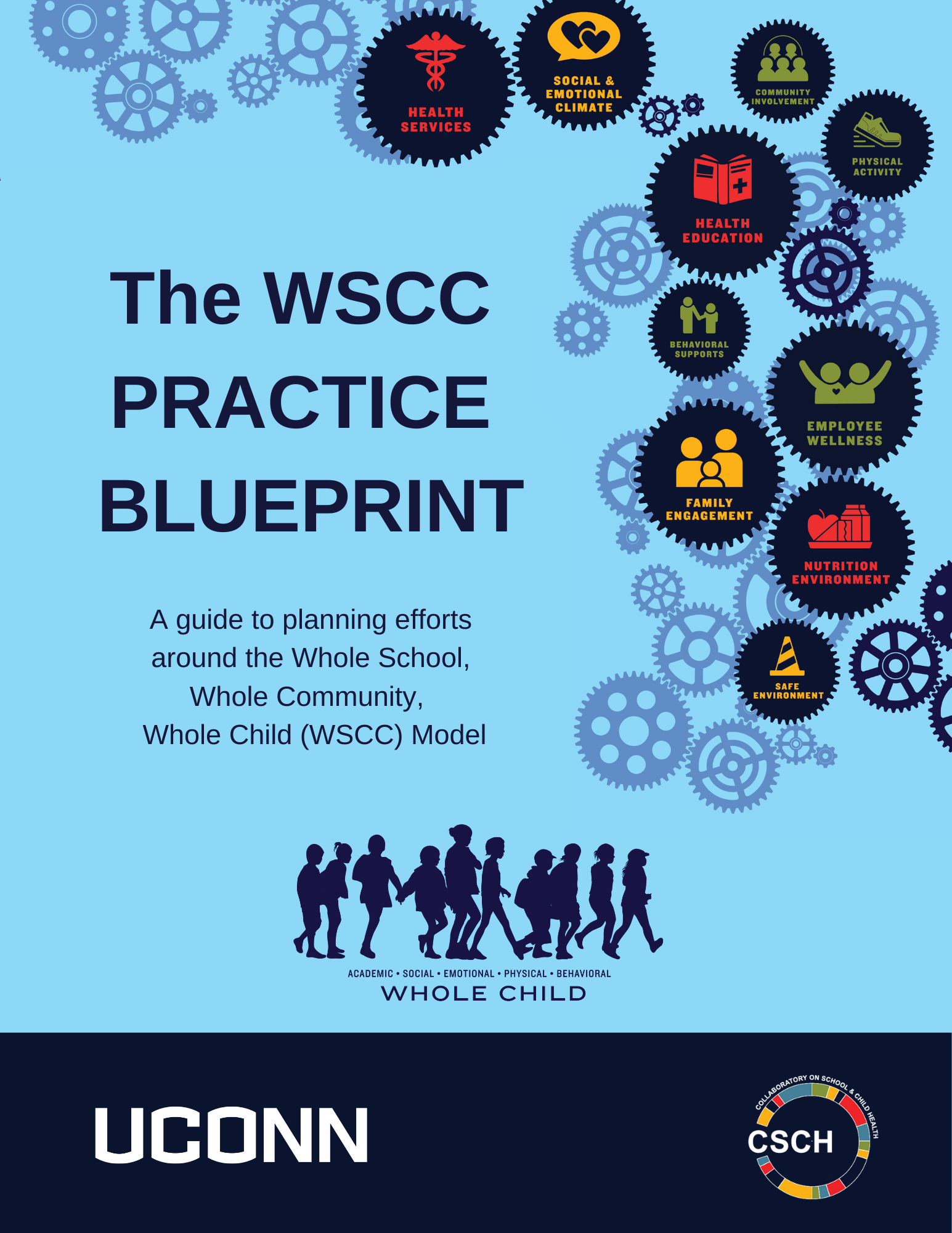

The Policy Blueprint is for school teams who are interested in the successful implementation and sustainment of Whole Child policy initiatives, with a particular focus on the need for coordination and integration of efforts.

The Practice Blueprint is for school teams who are interested in improving their practice alignment with the WSCC model and in successful implementation and sustainment of WSCC Practices as aligned with integrated multi-tiered systems of support (I-MTSS).
WSCC Blueprinting Resources
Listen to our CSCH Podcast Episode or read our CSCH Brief explaining the WSCC Blueprints and why we made two!
How to Complete the Policy Blueprint
The WSCC Blueprints can be completed in a number of ways: over a series of sessions, in a longer chunk of time over professional learning time, or as a revisit after completing the full blueprint once. We recommend a 10-session structure for completing your blueprinting work. Each Policy Blueprint session – with the exception of Session 5 – is expected to take 30-45 minutes to complete. Depending on your schedule and needs, you can modify this schedule or combine sessions.
Download individual policy blueprint sessions through the accordions below or download the full WSCC Policy Blueprint.
Individual Sessions – WSCC Policy Blueprint
Intro to the Blueprint (Sessions 1-2)
In these sessions, you will learn about the Whole School, Whole Community, Whole Child (WSCC) Model, and engage in activities to set you up for success in your blueprinting process.
- Session 1 – To gain familiarity with the WSCC model and available resources for strengthening knowledge
- Session 2 – To understand the rationale behind the blueprinting process and begin to think about WSCC policies and practices in your setting
- Supplemental Materials – To help you construct an effective leadership team with representation across a variety of roles and WSCC domains
Exploring Context (Sessions 3-5)
In these sessions, you will identify strengths and needs related to educating the whole child.
- Session 3 – To gain experience with a policy evaluation tool, the WellSAT WSCC, which helps you to evaluate policy alignment with the WSCC model
- Session 4 – To compile WSCC-aligned policies in your setting, identify colleagues with expertise related to each policy, and available resources that might assist with strengthening policy
- Session 5 – To evaluate your current policies’ alignment with the WSCC model
Evaluating Directions (Sessions 6-7)
In these sessions, you will examine opportunities to strengthen whole child initiatives by implementing, refining, or de-implementing.
Establishing Actions (Sessions 8-10)
In these sessions, you will plan for success by identifying action steps, addressing anticipated barriers, and creating plans for monitoring implementation.
- Session 8 – To narrow down to 1-5 policy changes to pursue, with these prioritized based on urgency and readiness
- Session 9 – To create an action plan for each policy change you are going to pursue
- Session 10 – To identify the practice changes that need to be made to align with revised policies
Resource Library
Resources that we found most helpful to guide our thinking.
WSCC MODEL
Center for Disease Control WSCC Website
Explains the WSCC model and provides resources.
Multiple articles collectively provided important lessons learned from the initial work in coordinated school health and whole child initiatives and offered directions for next steps as the WSCC model is advanced.
The NASBE State Policy Database on School Health
Searchable database of all identified statutory and regulatory language related to the WSCC.
WHOLE CHILD
Provides an overview of schools as a context to serve as assets or risks to equity, discusses theory and science using a WSCC lens and provides directions for science and practice in advancing a positive education approach.
Comer School Development Program
Describes the origins and success of the School Development Program.
Reviews research demonstrating that student learning and development depend on affirming relationships operating within a positive school climate.
Provides resources and professional development for practitioners, families and policymakers looking to focus on Whole Child systems.
POLICY RESOURCES
Our evaluation tool aligned with the Whole School, Whole Community, Whole Child model designed to assist users in taking a comprehensive and integrated lens to school policy evaluation.
Center for Disease Control School Health Index (SHI)
The SHI Self-Assessment and Planning Guide is an online self-evaluation and planning tool for schools.
USDA: How to Develop, Implement, and Evaluate a Wellness Policy
Focused on policies around nutrition and physical health.
This University of Kansas Center for Community Health and Development’s Community Tool Box lists resources and questions to think about when tackling school policy changes.
DC Office of the State Superintendent of Education: Local Wellness Policy Template
The Washington DC Division of Health and Wellness has created a policy template with sample language for all ten WSCC components.